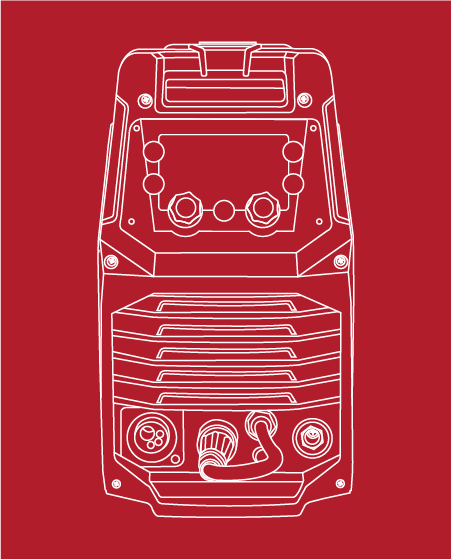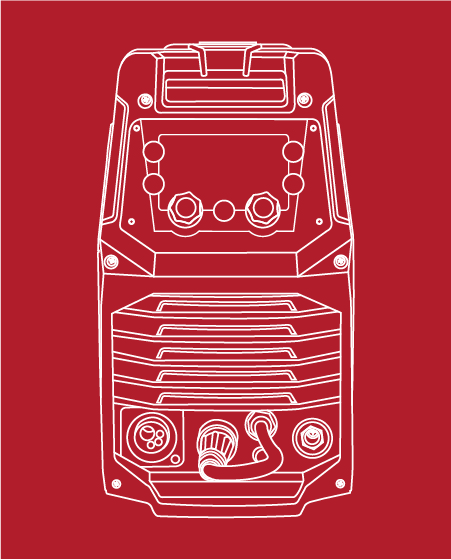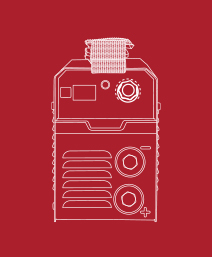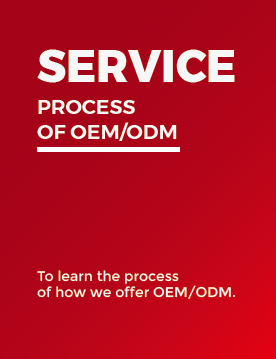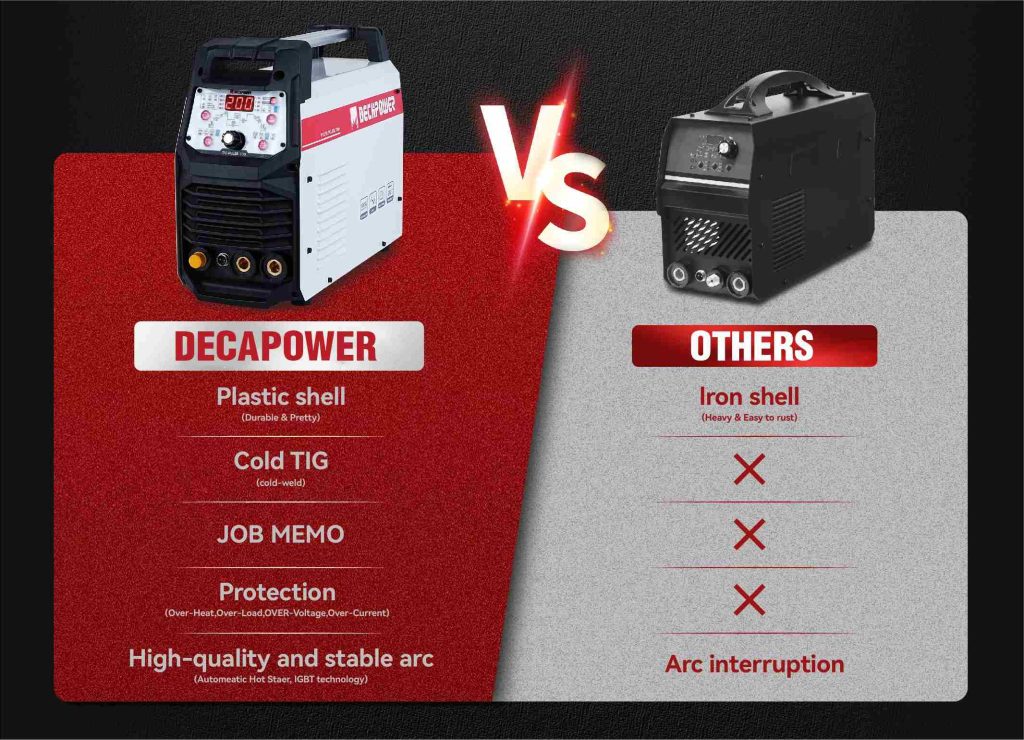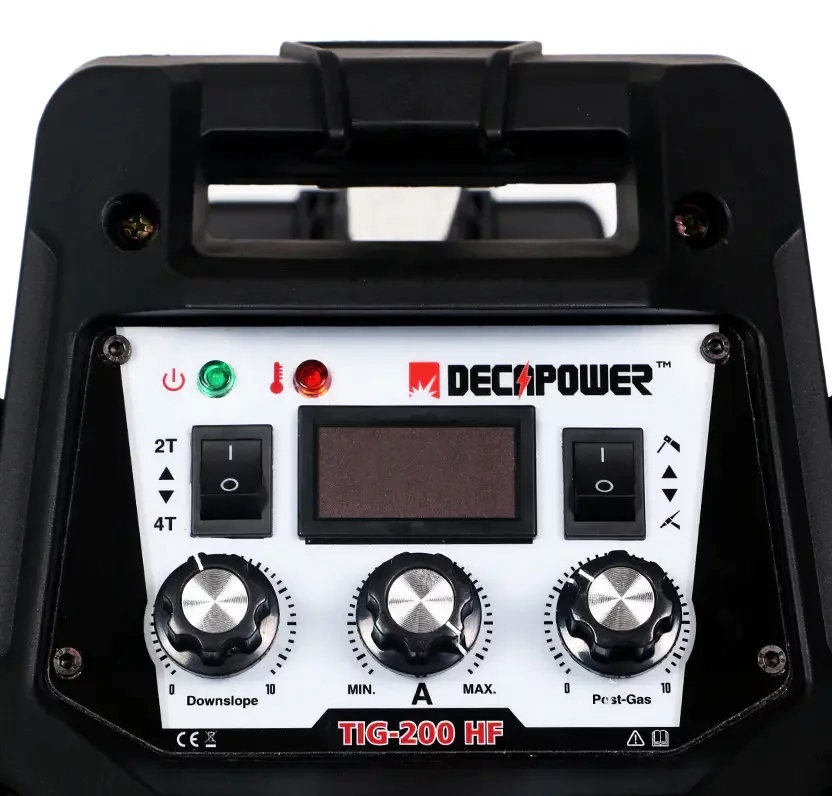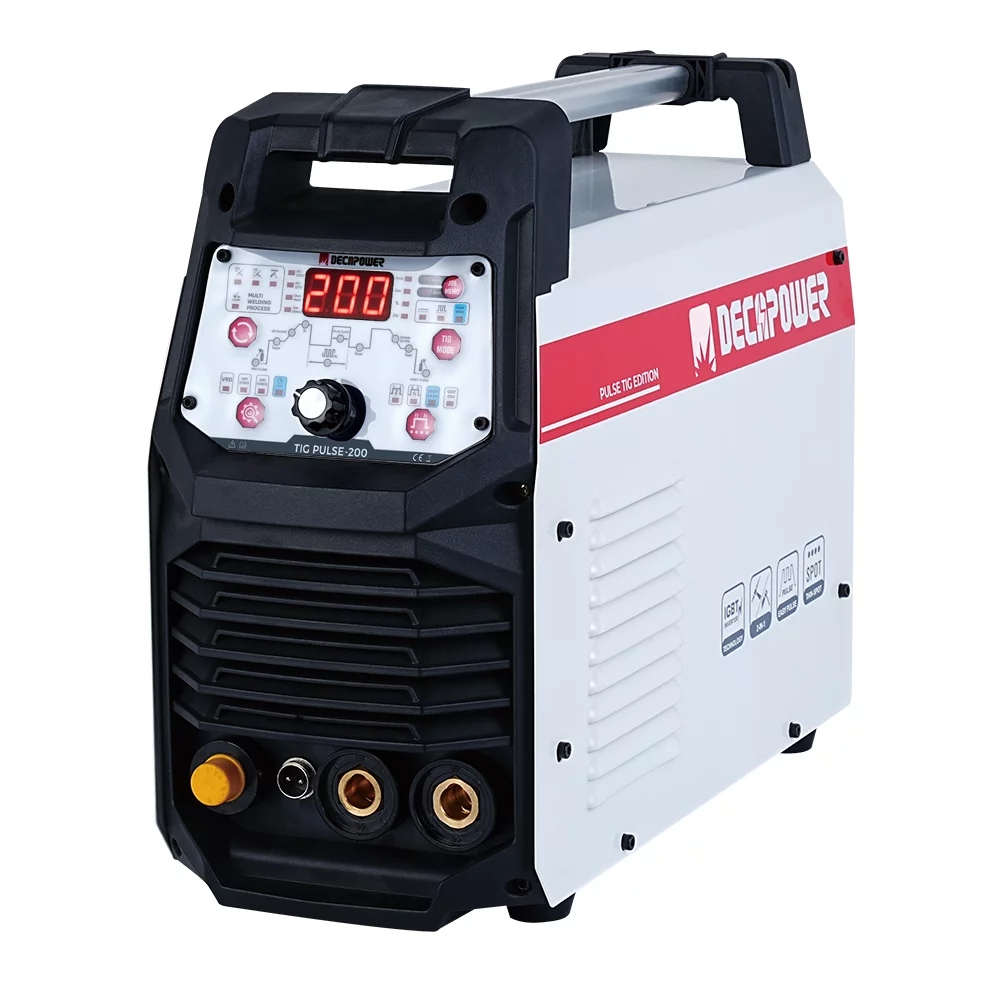Decapower Curated information for Professionals, Hobbyists & Educators.
Stay up to date with the latest information on new products technology,innovations and more from Welding Machine Industry.
Best Professional TIG Welders: Top Features You Must Check Before Buying
For the experienced artisan, TIG welding is more than a method—it’s a skilled craft. It’s the search for the ideal seam, the seamless joining of metals where durability combines with elegance. However, this degree of skill requires a device that is not just strong, but clever, exact, and trustworthy. Selecting a professional TIG welder is a crucial investment for your work, and understanding which traits truly matter is the key to unlocking your full potential.
As a producer of excellent, problem-solving welding items, Decapower focuses on creating gear that counts. We recognize the challenges experts face and are committed to providing innovative solutions. This overview will guide you through the main traits you need to examine to make sure your upcoming TIG welder is a genuine ally in achievement.
1. Advanced Current Control and Amperage Range
A professional welder must work with materials of many thicknesses, from thin sheets to thick slabs. You need equipment with a wide amperage range and fine current control. Micro-processor-controlled TIG welders, like the Decapower PULSE TIG 200 AMP TIG INVERTER WELDING MACHINE, deliver excellent control over the welding arc. This lets you choose the exact amperage for ideal heat input. It prevents warping on thin metal and ensures deep penetration on thicker parts.
2. Pulse Welding Technology
Pulse welding is a transformative option for any expert dealing with stainless steel or other heat-vulnerable alloys. By switching between a high top current and a reduced base current, it offers accurate warmth oversight. The Decapower PULSE TIG 200 is particularly designed with this function. The gains are substantial. First, it lessens bending. The reduced total heat addition greatly cuts down distortion on slim materials. Next, it provides better puddle handling. The pulsing motion lets the weld puddle pause to chill, which simplifies control, particularly in awkward positions. Finally, it achieves visual excellence. It aids in forming the much-wanted, even “stack of dimes” look with increased steadiness.
3. High-Frequency Start and Arc Stability
The way an arc starts matters a lot for a tidy weld. High-Frequency (HF) arc ignition is the expert norm, producing a touch-free beginning that keeps the tungsten electrode from contacting the piece. This removes tungsten pollution in the weld area, which is vital for pure uses. All Decapower TIG welders, including the HF TIG series and the PULSE TIG 200, come with this key option. For extra flexibility, the PULSE TIG 200 also includes a LIFT ignition choice, fitting for settings with delicate devices. Arc steadiness is additionally assured by the IGBT inverter-based full bridge system in our units, which supplies a steady and uniform arc.
4. Duty Cycle and Thermal Management
Expert tasks require extended periods and steady output. A welder’s duty cycle—the duration it can run at a certain amperage in a 10-minute span—is a major sign of its heavy-duty ability. Although exact figures differ, a professional device needs a high duty cycle to manage factory settings without excess heat. Strong thermal handling setups, such as effective cooling vents and detectors, are crucial for unit endurance and dependability.
5. Precise Waveform Control
For DC TIG welding, which suits steel, stainless steel, and copper well, the firmness of the DC waveform is key. The microprocessor oversight in modern units like the PULSE TIG 200 secures a fully stable and pure DC result. This leads to a concentrated, steady arc that grants the user top control over entry and seam shape, marking the sign of an expert-level weld.
6. Gas Flow Control and Preflow/Post-flow
Correct shielding gas protection is absolute for avoiding air pollution. Professional TIG welders should provide exact oversight of gas movement. Important traits to seek include pre-flow and post-flow. Pre-flow begins the shielding gas flow just before the arc lights up, clearing the weld zone of impurities. Post-flow keeps the gas moving for a fixed period after the arc stops, guarding the cooling weld area and the warm tungsten electrode from rust. Decapower’s HF TIG series permits tweaks to post-gas duration and down-slope, which slowly lowers the current to avoid end cracks.
7. Remote Control Compatibility
The option to tweak amperage finely while welding without halting boosts efficiency greatly. Matching with remote controls, like a foot switch or a finger tip on the torch, delivers this no-hands ease. It permits active heat handling as you move through tricky connections or shifts in material width. If your routine needs this particular function, Decapower’s tailored OEM offerings can look into adding such traits to fit your demands.
8. Data Logging and Connectivity
In advanced, data-intensive production environments—especially where strict quality control and weld traceability are mandatory—data tracking and connectivity are indispensable. These features enable precise monitoring and documentation of welding parameters for rigorous quality assurance and process optimization. Decapower’s R&D team stands ready to design custom solutions for clients requiring state-of-the-art integration.
9. Build Quality and Service Support
A professional instrument must endure over time. Decapower welders are crafted as movable yet tough units, using top-grade parts like an IGBT inverter system to guarantee both toughness and output. Past the actual item, real expert backing stems from the maker. Decapower relies on a client-focused approach. We are more than a supplier; we are an associate. We provide full OEM offerings, letting us supply a tailored item based on your details and needs. Our use-specific technicians are prepared to adjust answers for your best output and value.
Conclusion
Selecting the best professional TIG welder demands more than evaluating amperage and price. It requires a commitment to advanced technology, including pulse welding and microprocessor control, prioritizing critical features like HF start and post-flow, and partnering with a company dedicated to excellence. The Decapower PULSE TIG 200 embodies these standards, providing a robust, versatile foundation for dedicated professionals.
At Decapower, we dedicate ourselves to creating items that count and supplying you with the best-fitting welding answer. Whether you require a tested unit from our range or a completely tailored welder made for your special use, our group is prepared to assist you succeed ahead.
FAQ
Q: What is the main advantage of the Pulse TIG feature on the Decapower PULSE TIG 200?
A: The primary advantage is precise heat control, which minimizes warping on thin materials like stainless steel and gives the operator superior control over the weld puddle for stronger, cleaner, and more aesthetically pleasing results.
Q: Why is a High-Frequency (HF) start essential for professional TIG welding?
A: HF start initiates the arc without the tungsten touching the metal, preventing contamination of the weld pool and the electrode. This is critical for meeting the high-quality standards required in professional fabrication.
Q: Can Decapower create a customized welder for my company’s specific needs?
A: Yes. Decapower specializes in OEM services to create customized products tailored to your specific requirements. Our application-specific engineers and R&D team can work with you to develop a unique welding solution.

